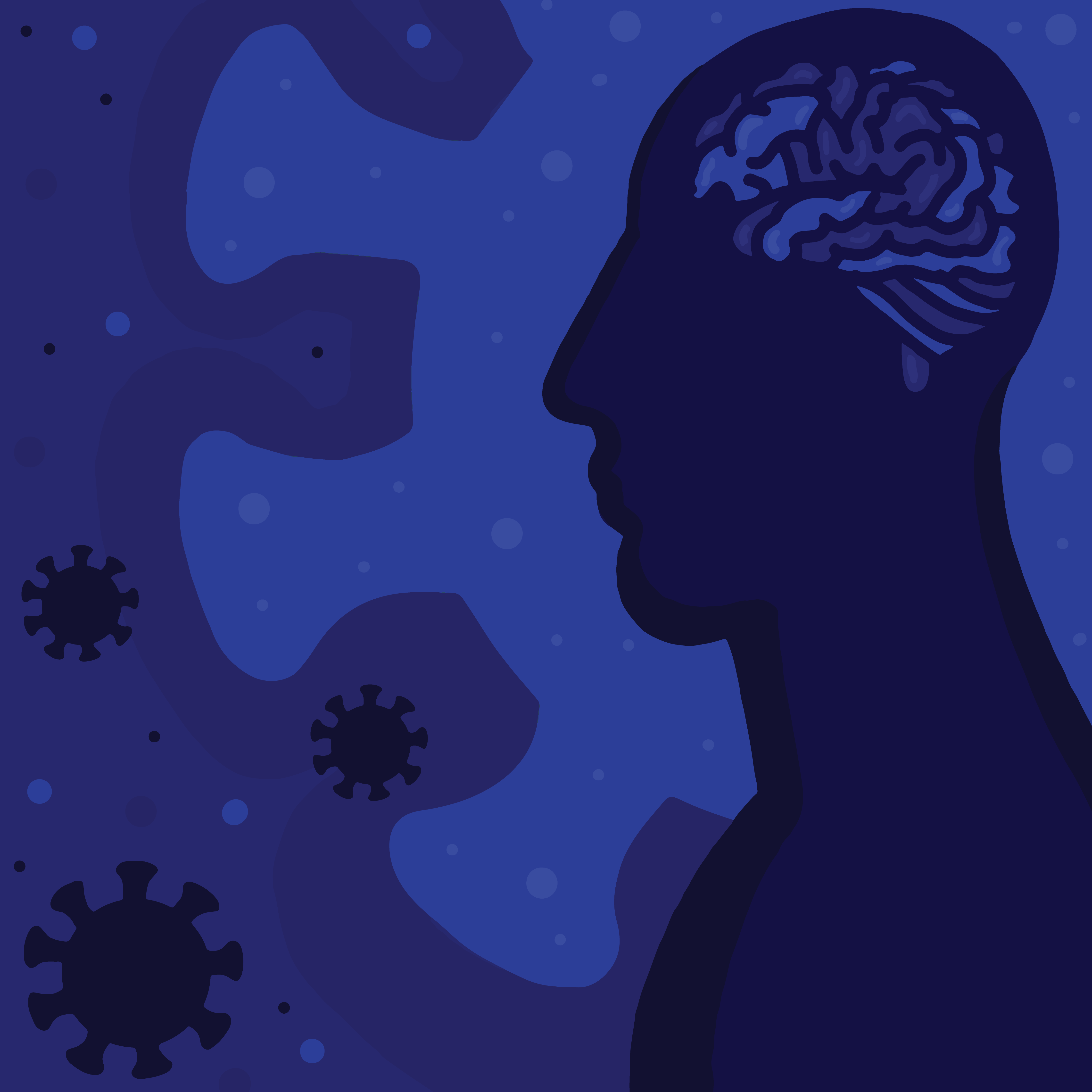By Mina Tocalini
A report from the BBC addresses the neurological symptoms of Coronavirus, which are believed to be linked to depleted levels of oxygen (hypoxia) or an over engaged immune system (cytokine storm). However, new evidence indicates that the virus is capable of infecting the brain and spinal cord by crossing the blood-brain barrier.
This suggests that the virus could permanently find a home in the central nervous system and reappear in the future, as seen with the development of Shingles in individuals who had Chickenpox. If the virus is capable of infecting the brain, how else could it affect our mental health?
Years after the 1918 Spanish Flu Pandemic, some patients continued to experience a long lasting depression, among other symptoms, due to neurological damage to dopamine neurons in the brain. Similarly, the Coronavirus experience has demonstrated this “long-hauler” behavior. A Body Politic survey reported that individuals endured mental and physical exhaustion, such as: fatigue, chills, trouble sleeping and loss of appetite for up to 5-7 weeks.
As a result, although some may consider the potentially mild experience to be little to no threat, it is important to acknowledge the complexity of this virus and assume all precautions necessary. Afterall, who knows what future infections could arise from Coronavirus? Or how your body will react to the virus for weeks on end.
Coronavirus has reshaped our lives, yet some are reluctant to adjust. Next time you go out, ask yourself, is my health/ the health of others worth it? Each one of us has the power to stop the spread, don’t be part of the problem. Be vigilant with your behavior, wear a mask, commit to social distancing and help keep your community safe.
Follow World Health Organization: Facebook | Instagram | Twitter






